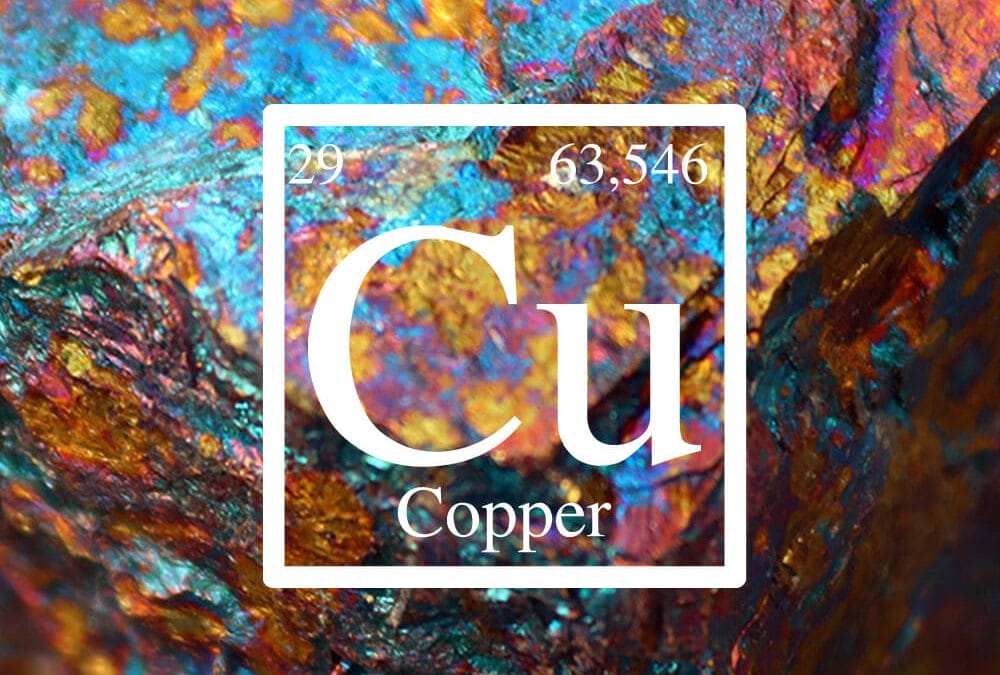Hey there, health enthusiasts! Today, we’re diving into the fascinating world of copper and its impact on our bodies. You might be thinking, “Copper? Isn’t that a metal used in wiring and plumbing?” Well, you’re right, but this versatile element also plays a crucial role in our overall health. So, let’s explore the ins and outs of copper’s relationship with our bodies, and how to maintain a healthy balance.
Copper’s Role in the Body
Copper is an essential trace mineral that participates in various physiological processes in our bodies. It acts as a key player in energy production, immune system function, iron absorption, and nervous system maintenance. Did you know that copper even contributes to the formation of connective tissue, including collagen and elastin? That’s right – it helps keep our bones strong, our skin supple, and our joints flexible!
The Ideal Copper Balance
Now that we know how important copper is, the question arises – how much of it should be present in our bodies? For adults, the recommended daily intake of copper is 0.9 milligrams. But remember, maintaining the right balance is crucial, as both too little and too much copper can cause problems.
Too Little Copper? Not Cool!
Copper deficiency can lead to a host of issues, including anemia, weakened immunity, neurological problems, and even osteoporosis. People living in developing countries are particularly prone to copper deficiency, so it’s essential to ensure we get enough of this vital mineral in our diets. Foods rich in copper include nuts, seeds, seafood, organ meats, and leafy greens. Some tasty examples are beef liver, oysters, dark chocolate, sunflower seeds, cashews, and quinoa. Yum!
Too Much Copper? No Thanks!
On the flip side, consuming excessive amounts of copper can lead to toxicity, which can cause symptoms like abdominal pain, nausea, vomiting, and even liver damage. So, while it’s crucial to get enough copper, moderation is key. Stick to a balanced diet that includes a variety of copper-rich foods, and be cautious with supplements or copper-containing medications.
Factors That Regulate Copper
Several factors can influence the balance of copper in our bodies, such as genetics, lifestyle, and diet. For instance, a high intake of zinc can interfere with copper absorption, leading to a deficiency. Similarly, excess copper can inhibit iron absorption, resulting in anemia. By maintaining a well-rounded diet that includes adequate amounts of all essential minerals, we can promote overall wellness.
The Benefits of Striking the Perfect Copper Balance
So, why should we care about maintaining healthy copper levels? Well, keeping copper in check can help prevent diseases like Alzheimer’s and Parkinson’s, which are linked to copper deficiency. Additionally, a well-balanced copper level supports a robust immune system, enabling us to ward off infections and bounce back faster from illnesses.
To sum it all up, copper may not be the first thing that comes to mind when we think about our health, but this mighty mineral plays a vital role in keeping our bodies in tip-top shape. By understanding the delicate balance of copper in our systems and making informed dietary choices, we can enjoy the benefits of this essential nutrient and support our overall wellbeing.
So, the next time you’re munching on a beautiful piece of beef liver or savoring a piece of dark chocolate, give a little nod to the fantastic world of copper and its contributions to your health! Cheers to striking the perfect balance and living our best, healthiest lives!
What's your personal copper status?
Minerals are thought to be the spark plugs of life. If your minerals are low or skewed, then your entire body will struggle. Find out your mineral levels with an HTMA test.

Kayla Howard
HTMA Practitioner
Wild wanderer 🌿, sourdough diva 🥖, holistic health clinician, 💊, game gourmet 🦌, trailblazing titan ⛰️, sheep & goat whisperer🐑, and faithful follower of Jesus 📜✝️.


